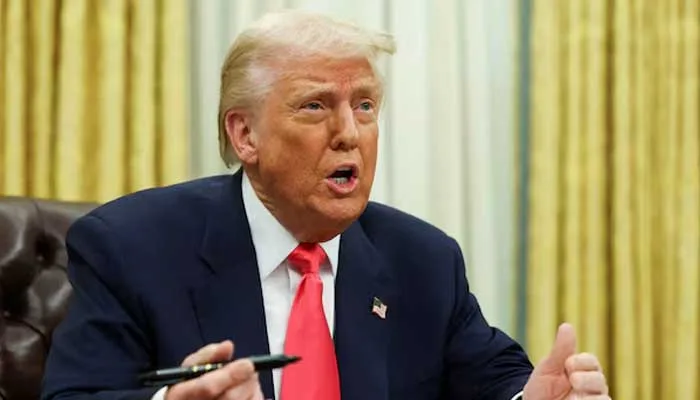U.S. President Donald Trump has once again taken a hardline stance amid escalating tensions between Israel and Iran, saying he is not interested in brokering a temporary ceasefire but wants a “real end” to the conflict. Speaking to reporters on board Air Force One, Trump issued a sharp warning to Tehran, declaring that any attack on U.S. personnel would be met with severe consequences.
“If they do anything to our people, we will come down so hard,” Trump said. “Then the gloves are off. I think they know not to touch our troops.”
The statement comes at a time when the region remains on edge after Israel launched large-scale strikes inside Iran, targeting nuclear and military sites. Iran has promised to retaliate but has so far not directly hit U.S. assets in the region. Trump’s remarks signal that the U.S. is prepared for a military response if provoked, further complicating efforts for de-escalation.
Ceasefire Not Enough, Says Trump
When asked if he was working toward a ceasefire between Israel and Iran, Trump rejected the idea of a temporary truce. “A real end, not a ceasefire,” he said, suggesting that only a permanent resolution to hostilities would be acceptable. “Giving up entirely is OK, too,” he added, alluding to expectations that Iran might abandon its retaliatory plans altogether.
Trump’s remarks suggest a pivot from traditional diplomatic language that often seeks temporary pauses in fighting to negotiate peace. Instead, his tone emphasizes finality — an end to Iran’s nuclear ambitions and possibly its involvement in regional proxy wars.
His statement also aligns with long-standing U.S. policy, reiterated by several administrations, that Iran must never obtain a nuclear weapon. Trump has repeatedly echoed this in recent speeches, arguing that Washington’s main concern remains Iran’s nuclear capacity, rather than the military tit-for-tat with Israel.
Vice President Vance ‘May’ Be Sent for Talks
Despite his strong rhetoric, Trump hinted at possible diplomatic engagement. He said he “may” send Vice President JD Vance and Middle East envoy Steve Witkoff to meet with Iranian officials if conditions allow. “It depends on what happens when I get back,” he told reporters, implying that a decision will be made after assessing Iran’s next moves.
The possibility of sending high-level envoys indicates that the White House still sees dialogue as a tool to prevent further escalation, even as it maintains a posture of deterrence.
Vice President Vance, a political newcomer with a military background, has taken a growing role in foreign policy matters since joining the Trump ticket. Envoy Steve Witkoff, a long-time Trump associate, has been active behind the scenes, liaising with Middle Eastern allies in recent weeks.
Follow us on Facebook and Instagram
